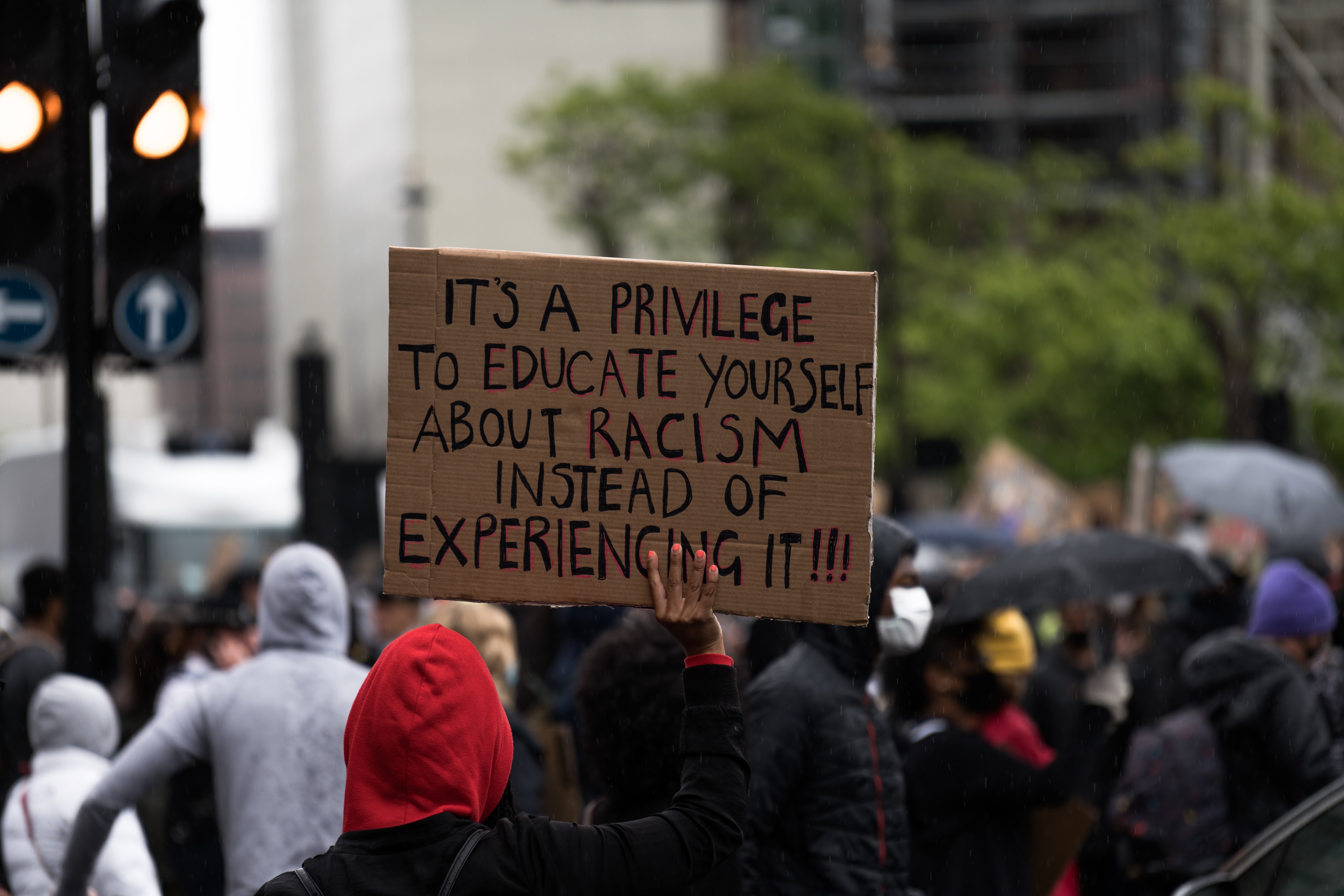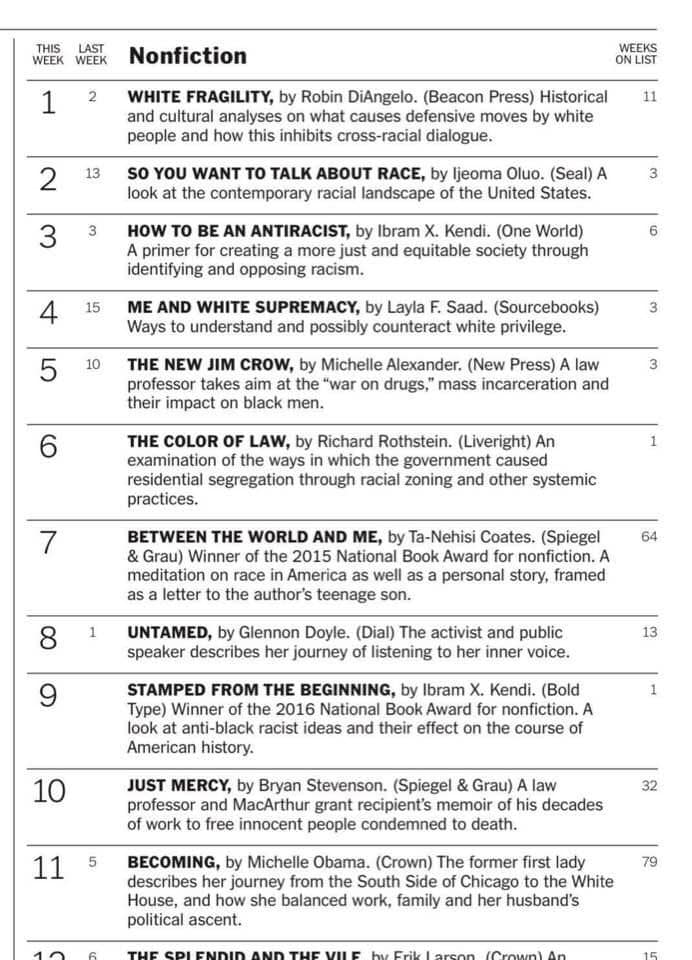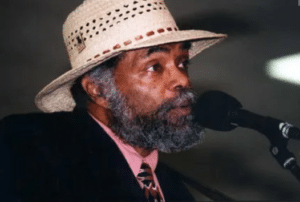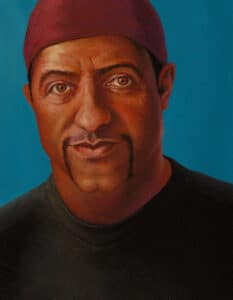- Happy Activism: A Sustainable Way to Create Change Without Burnout - February 9, 2026
- The Meaning of Critical Thinking: A Key Skill for Navigating Today’s Information Landscape - November 3, 2025
- Grandparents Can Develop Activist Grandchildren - September 29, 2025
Last Updated on October 23, 2024
The protests of the police’s murder of George Floyd’s police have galvanized America and the world. I see it in the glorious wall of protest art people made on the fence around the White House.
A friend who visited the DC wall said,
“The energy down there was incredible. You can *feel* that this is a historical time in the making.”
She plans to return with her own sign.
In my small Bible Belt town, 3000 people attended a peaceful Black Lives Matter rally. Even in my son’s small city of Trier, Germany protesters held a protest.
Check out the New York Times non-fiction list dominated by books about racism. It appears that in this time, white people are more open to learning how they can understand and change.
I’ve read several books on this list, my favorite being White Fragility. But I loved Just Mercy, too – both the book and the movie. Bryan Stevenson is a hero.
Black Lives Matter has been protesting racial injustices since 2013, but why has the issue come to the forefront now? It appears that for large-scale change to occur, one in four people must take a stand on the issue. That percentage of support creates a tipping point.
Rashad Robinson, the president of the civil rights organization Color of Change, speculated that it was the stark cruelty of the video of George Floyd’s death that captivated the country. The pain was palpable, the nonchalance in Derek Chauvin’s face, chilling. –Jenna Wortham, New York Times
Change is happening.
How Can White People Support Black Lives Matter?
It seems clear that more white people are supporting Black Lives Matter. But now that we are not on the sidelines anymore, what unique place do we hold in the fight?
It seems apparent that we can make an impact, as long as we don’t tread on the work being done by people who have long been fighting for racial equality. And as long as our voices don’t drown out the more critical voices of those impacted directly.
First, Understand Your Privilege
Start with understanding your privilege. You hold areas of privilege and are not privileged in others. Understanding your unique perspective means you will be a better ally.
The BuzzFeed quiz, “How Privileged are you?” isn’t a scientifically developed survey, but it is enlightening. Take a moment to test your privilege.
“I would start with some very deep reflection on what it means to be white: How your own race shapes your life. … Our voices, our part in this has been missing for all too long.
But again, we’re never going to understand this if we don’t listen to black, Indigenous and other peoples of color. So start reading what they’re writing, listening to their videos, attending their talks and educating yourself.” – Robin DiAngelo, author of White Fragility
When you are ready, identify areas where you can grow in the process of dismantling privilege. A great resource is the Anti-Defamation League Personal Self-Assessment of Anti-Bias Behavior.
Support Black Lives Matter by using your privilege to help others.
How to Get Started in Activism
If you are ready, but not sure how to get started supporting Black Lives Matter, following the 5-Step Activism Path will help. And check out How to Get Started in Activism. The 5-Step Activism Path Workbook (formerly The What’s On Your Sign? Workbook) contains inventories and exercises to help you set goals for being culturally competent.
Match Your Skills With the Type of Activism Work That Best Suits You
Find what type of work suits your skills, knowledge, and motivation. I love that protestors are taking down civil war statues, but civil disobedience has risks. That may not be possible for you, but perhaps something like fundraising might be a great place to support Black Lives Matter.
Some examples of activists use their unique gifts to support racial equality. Artist Carl Gombert created an art installation to highlight our reactions to appearance. Rhonda Rucker writes children’s books about race.
Find an Activism Opportunity That Works for Your Life
Racial equality may be the cause closest to your heart. But perhaps you care about it deeply yet have pledged yourself to another cause. Finding yourself pulled in different directions is common because of so many ways we need to make change. In my book, I recommend you find the cause closest to your heart to keep you productive and motivated over the long term. But that doesn’t mean you cannot support other causes in smaller ways. Examples include donating, protesting, and writing letters to the editor. These are activism opportunities that fit into a busy life.
Support Black Lives Matter
As a white person, I have a long way to go to understand how my skin color has made my life easier, without me having to do anything at all.
If you are a white person ready to support racial justice, visit Showing Up For Racial Justice to get started. SURJ has resources, such as this guide to White Supremacy Culture guide. You can search for local SURJ chapters.
Black lives matter.
Resources
My visit to the National Memorial for Peace and Justice shook my foundation.
Read more about my Living Legacy Pilgrimage to Montgomery, Alabama in How to Understand Racial Justice in a Deeper Way.
My post about what white people can do to support racial justice.





Pingback: I'm Swamped! How Can a Slacktivist Make A Difference In The World?
Pingback: How an Artist Teaches a Powerful Message about Racism
Pingback: You Have the Power to Stop Harassment • Life At The Intersection
Pingback: What Being A Witness Teaches Us About Social Justice
Pingback: What Can White People do to Support Racial Justice?
Pingback: Powerful Advice for New Activists: Agitate, Agitate, Agitate!
Pingback: How to Understand Racial Injustice in a Deeper Way